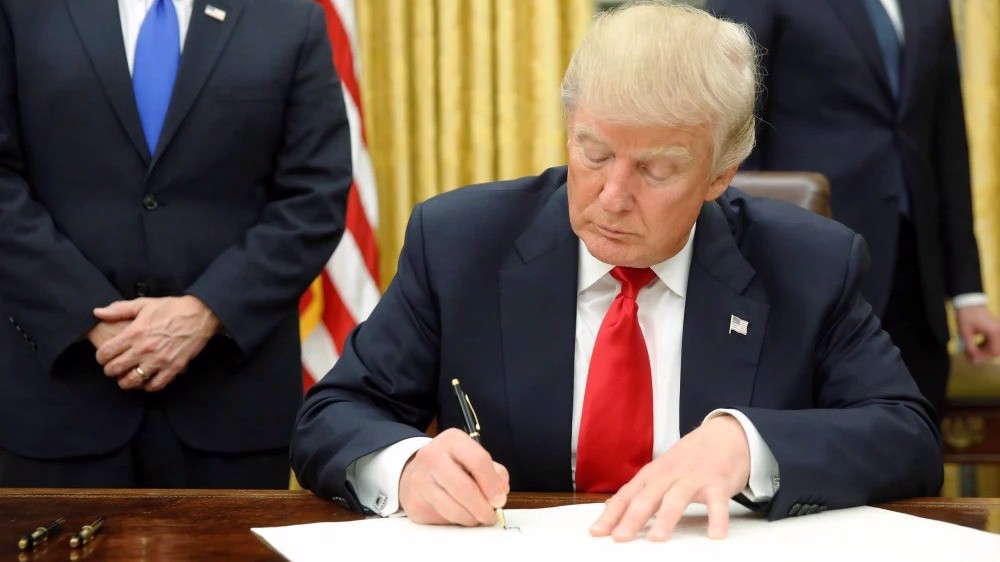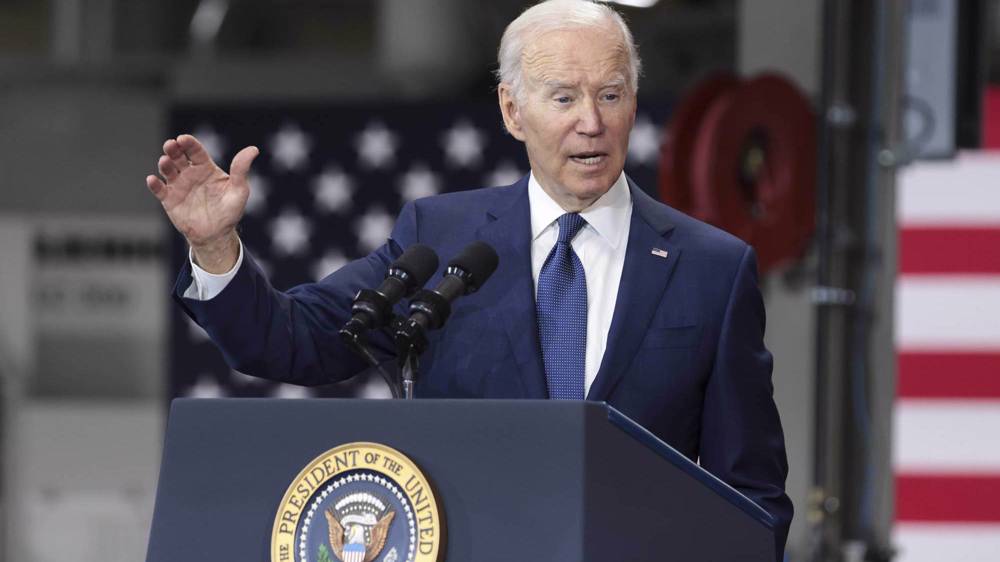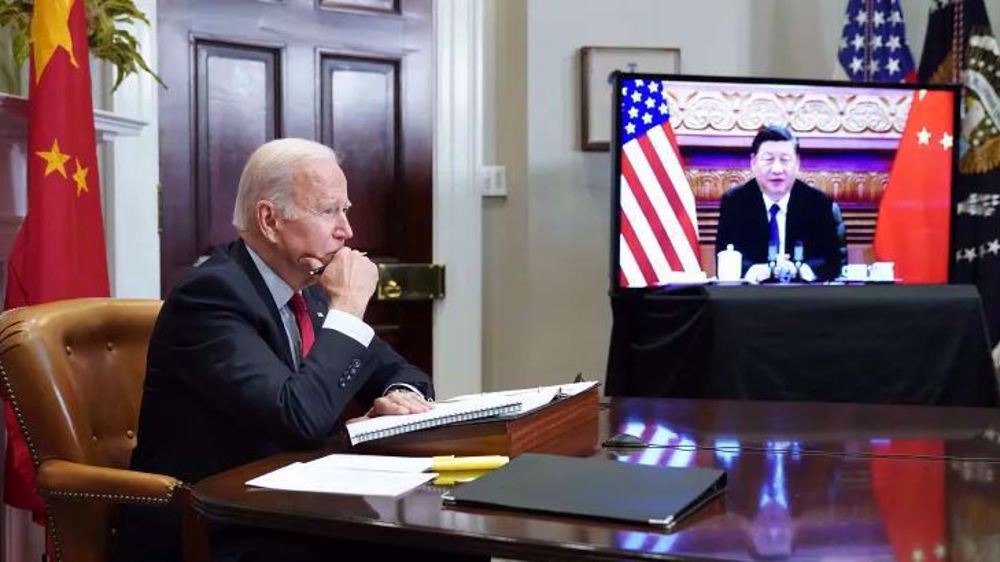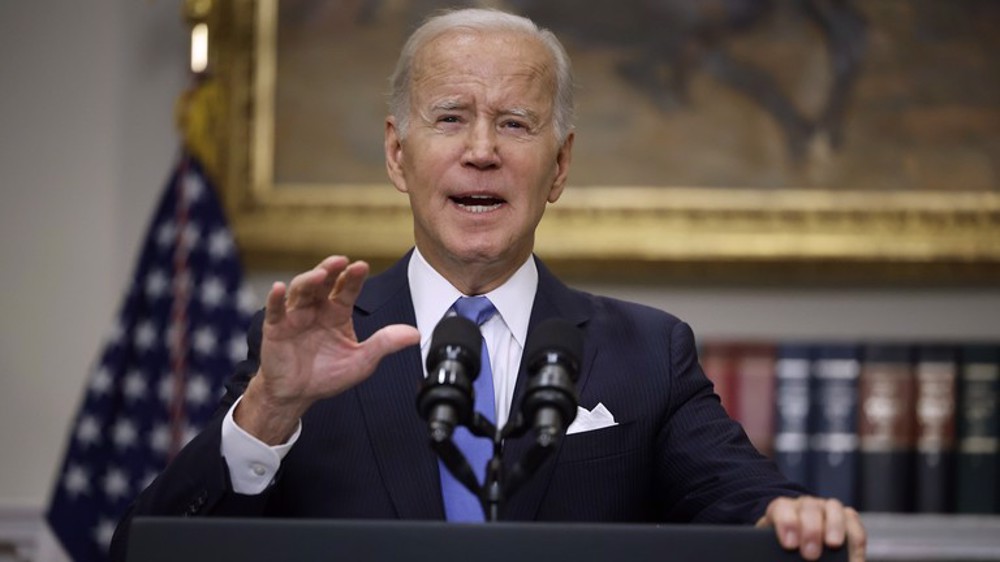US national security strategy targets China, Russia
The White House has unveiled a long-delayed national security strategy that aims to block China’s rising influence, claiming that US leadership is the key to overcoming global threats such as the rise of authoritarianism.
"The People's Republic of China harbors the intention and, increasingly, the capacity to reshape the international order in favor of one that tilts the global playing field to its benefit, even as the United States remains committed to managing the competition between our countries responsibly," national security advisor Jake Sullivan claimed on Wednesday in outlining the policy.
The release of the 48-page document, which was postponed by the eruption of the Ukraine conflict, includes no major shifts in thinking and introduces no major new foreign policy doctrines, according to local news reports.
The US strategy further insists that China represents the most consequential challenge to the global order and that the US must win the economic arms race with the superpower if it hopes to retain its global influence.
Sullivan stressed Washington must manage the China relationship while dealing with transnational challenges including climate change, food insecurity, communicable diseases, terrorism, the energy transition, and inflation.
Sullivan also noted that the Ukraine crisis did delay but did not "fundamentally alter" Biden's foreign policy approach.
The administration was supposed to have sent the strategy to Congress when it submitted its proposed budget on March 28.
Senate Armed Services Committee Chairman Jack Reed welcomed of the release and noted that it "recognizes that we must modernize and strengthen our military."
"This will require smart investments in platforms and equipment, rapid development and integration of cutting-edge technologies," the Rhode Island Democrat underlined, noting that he looked forward to the Pentagon releasing an unclassified version of the National Defense Strategy.
Biden, meanwhile, has still not resolved a number of key foreign policy debates, including tariffs on Chinese goods, and faces new ones brought into high relief by Russia's actions, including fraying relations with long-time ally Saudi Arabia and India's reliance on Russian energy.
Sullivan further echoed remarks by Biden this week that the Washington is "reevaluating" its relationship with Saudi Arabia after OPEC+ announced last week it would cut its oil production target over US objections.
A single reference in the document to North Korea also highlighted limited US options to contain Pyongyang’s nuclear and missile programs.

China vows response after Trump announces new 10% tariff

Trump extends Russia sanctions ahead of meeting with Zelensky

Health leader warns Africa's health services at risk of 'collapse'
Iran's freestyle wrestling team clinches championship title in Albania ranking series
Trump seeks sweeping cuts to State Department: Report
VIDEO | Iran, Pakistan strengthen media cooperation to foster cultural ties
VIDEO | BRICS workshop in Tehran strengthens innovation, cooperation
Iran condemns deadly bombing in Pakistan, stresses regional unity to fight terror
Jordanians rally en masse to censure Trump's Gaza takeover plan
VIDEO | Press TV's news headlines
Iraq asserts commitment to security agreement with Iran









 This makes it easy to access the Press TV website
This makes it easy to access the Press TV website